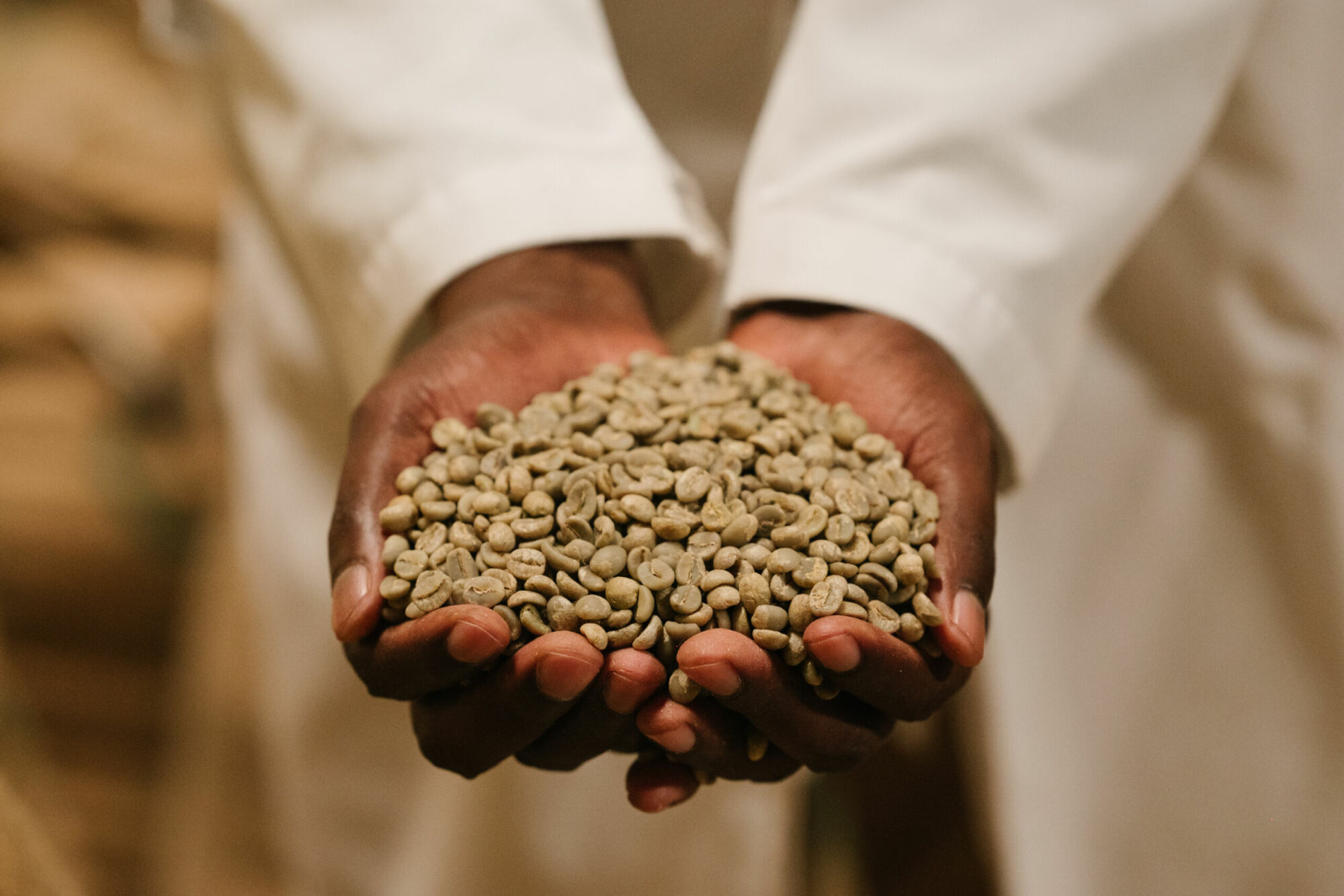
“Coffee is our cash crop, and it’s the crop that gives me financial freedom,” says Elly Bwambale, a coffee farmer from Rwenzori in Uganda.
Although their parents were committed to coffee farming, Elly and his wife Scovia Kabugho now see the financial value in it, unlike their parents who earned minimal or no returns. The 38-year-old farmer and his wife are full-time coffee farmers, and their children join them during school holidays. They currently have 1000 coffee tree bushes on their two-acre farm, where they also keep goats and poultry to supplement their income.
A look around most farms reveals that many coffee trees are very old and almost dying, and farmers are unable to think about stumping those trees or planting new ones, thus affecting their yields and returns.
“Our secret to increased income has been good agronomical practices that have boosted our yields. In the past, I would just farm using the old methods passed down from our parents. However, stumping the coffee trees has helped rejuvenate and eliminate infested trees,” explains Bwambale.
These practices have significantly increased his coffee production and improved its quality, allowing him to supply to Longmiles and earn two million from one tonne (close to 1000 kgs) of red cherries for two seasons, from March to June and September to November.
Coffee scouts have played a vital role in increasing their yields. Through training, they learn new methods to enhance coffee quality and crop yield. One of the key agronomical recommendations is to pick only the red cherries, which might result in lower volumes but fetches better prices. This change has contributed to Elly and Scovia’s increased income.
Bright, the lead agronomist with Longmiles, explains that “coffee scouts are committed to serving coffee farmers all year round. Each Coffee Scout works with a group of farmers, supporting them with better agricultural and agronomical practices.”
The Coffee Scouts act as liaisons between Long Miles and coffee farmers. They live in the hills and mountains where coffee is grown and, together with the Long Miles agronomists, come up with innovative solutions to improve coffee quality, mitigate the effects of climate change on soil health, and empower farmers with the necessary tools to produce quality coffee.
During the coffee harvest season, the Coffee Scouts guide farmers in selective cherry-picking and assist with coffee cherry quality control at the washing stations. Even after the harvest, the Coffee Scouts continue training coffee farmers on the importance of mulching, fertilizing the soil, growing green manures, planting indigenous shade trees, and seasonal pruning of coffee trees.

“Thanks to Longmiles, we take our coffee to the buying station positioned at the top of the mountain. Otherwise, in the past, we have spent close to six hours a day getting down the mountain to find a buyer,” explains Scovia.
The off-season when coffee yields are low poses challenges for Elly and Scovia, especially in transporting the coffee to the wash stations due to the hilly terrain, making transportation expensive. They also face challenges with obtaining manure since they don’t keep cows due to limited land and the mountainous terrain. “We are hoping to get pulping waste from the wet coffee stations to use in our coffee plantations,” says Scovia.
“We also intercrop other crops in the coffee, such as bananas, beans, and cassava, among others. Through intercropping, we ensure food security,” says Scovia. Additionally, they have established a kitchen garden where they grow vegetables and some eggplants.
As a family, they have constructed a brick residential home, established a retail business, and have plans to venture into a hardware business selling construction materials. They have also purchased two pieces of land totaling two acres where they plan to plant more coffee.
With their improved income, they can now pay school fees on time, buy books, provide for their four children, and even have hopes of buying a car.
